Vertigo 42: A Richard Jury Mystery
by Martha Grimes
New Scotland Yard Superintendent Richard Jury returns to the page, commencing with a visit to Vertigo 42, a stylish champagne bar set atop one of the financial towers in the City of London. Jury goes to the bar to meet Tom Williamson, a friend of an old friend. Williamson's wife, Tess, a woman of independent wealth, died 17 years earlier. She fell down a flight of stairs in the backyard garden of Laburnum, the couple's home in Devon, and her tragic death was deemed the result of a misstep, as the stairs were very steep and Tess suffered from vertigo--attacks of dizziness, fainting and falling.
The theory never sat well with Tom Williamson, who remains haunted by his wife's death, as well as an incident that happened five years before she died. A random conversation with Sir Oswald Maples, a famed WWII code-breaker (and character from an earlier book), inspired Tom to re-engage with the mystery of his wife's death. Thus, he asks Richard Jury if he'd mind putting a few questions to the commander of the Devon-Cornwall police, Brian Macalvie, who originally investigated the case and was also a chum of Jury's at Exeter.
It seems that five years before Tess's death, she hosted a party for some children at Laburnum. Tess and her husband could not have children of their own; however, Tess was very fond of children and often threw parties for them. At one of these gatherings, a nine-year-old named Hilda Palmer fell into one of the drained, fairly deep, concrete pools on the grounds and died--even though the children had been warned not to play near the gardens around the pool. After the unfortunate tragedy, many people--most notably, Hilda's mother--blamed Tess for the child's death. When Tess died five years later, Tom Williamson suspected foul play, perhaps revenge, despite her death being ruled as accidental and the inquest remaining an open verdict.
Richard Jury agrees to reexamine the cold case. For the next seven days, after the meeting with Williamson at Vertigo 42, Grimes plots the journey of Jury and his dependable, likable sidekick, Sergeant Wiggins. As they travel from London through the English countryside to visit Laburnum, they seek out the five now adult surviving party guests, hoping to unearth new insights into Tess's death.
Along the way, Jury and Wiggins revisit old haunts and recurrent characters from prior novels. Their quest, however, is complicated by the death of a mysterious young woman--wearing a striking red dress and spike-heeled shoes--who falls from a tower near a pub in Long Piddleton. Was the woman's death an accident, suicide or murder? Shortly thereafter, a man is shot dead in an alleyway of Sidbury. He is later identified as the estranged husband of the "woman in red." This leads Jury to wonder if these two deaths are a coincidence, since the homicide rate in Sidbury is "minus zero."
The local police are brought in, and the mysteries--past and present--deepen with every stop Jury and Wiggins make en route to Laburnum. The two begin to question those once connected to Hilda Palmer and Tess Williamson. The children who were in attendance at the fateful party are now in their early 30s: a beautiful model from Harrods; an aspiring actress who still lives with her mother; a plain-looking, needy girl, the only married one of the bunch, who is hard to locate; a writer who would prefer to be a chef, but can't, due to expected familial conventions; and an accomplished, brilliant doctor who lives in a very seedy neighborhood. Jury and Wiggins also track down and question an adult chaperone who was at the infamous party.
In reconstructing the past it is soon revealed that everybody adored Tess Williamson, but nobody liked the deceased child, Hilda, a beastly, mean-spirited girl who took pleasure in needling others--children and adults alike. One of those interrogated remarks, "Hilda liked to hold people hostage. Her forte was gathering information and threatening to use it." In addition, it seems that some of the now-scattered guests from that day are living sordid lives and keeping secrets, making Jury's quest for the truth all the more challenging.
Richard Jury remains an engaging protagonist. He is smart, witty, lovably sarcastic, and his assured confidence keeps him wholly unafraid to follow his instincts. As in the other 22 books in the series, Grimes's fondness for classic movies, literature and cleverly named British pubs resurface in this latest installment, along with her penchant for mentioning high-end fashion and footwear. Recurrent characters, familiar colleagues and cronies from other Jury books make welcome cameos. While some of the identifying descriptions of the large supporting cast are a bit sketchy, Grimes gives just enough information to refresh old fans, and whet the appetites of new readers.
Grimes is a culturally literate writer who skillfully sets up her premise and then unravels the carefully constructed, interwoven plot via nuanced complexities. With each new discovery and red herring, Grimes leads readers deeper into dark, winding labyrinths of suspicion and doubt. In this novel, the story arc of four deaths and four victims is fortified by the mysterious presence of a stray dog, a Staffordshire terrier, that crosses Jury's path; Tess Williamson's love of poetry and how literature--including the fatalistic work of Thomas Hardy who seemed to think "destiny was irrevocable"--might've played a significant role in her life and possibly even her death; and allusions to the Hitchcock film Vertigo, which involves a fear of heights, along with obsession, betrayal and questions about identity. As one character says in regard to the filmmaker's work, "It's all about appearances. Sometimes that's what I think life is: all appearance. No reality." In the end, Vertigo 42 offers a surprising conclusion that pays homage to the best of Hitchcock, while proving, once again, that Grimes remains a master of the genre. --Kathleen Gerard



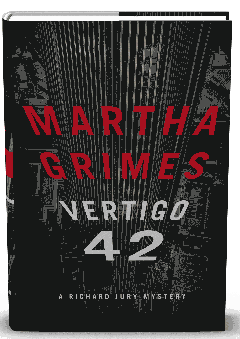
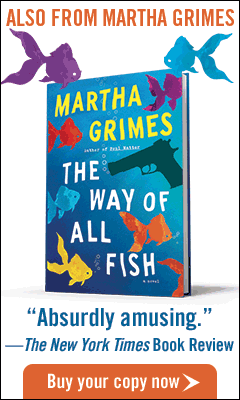
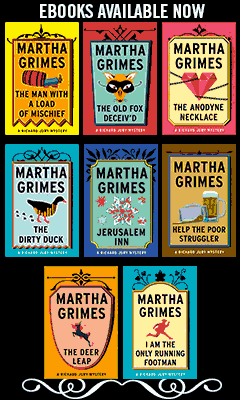
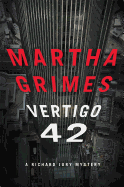

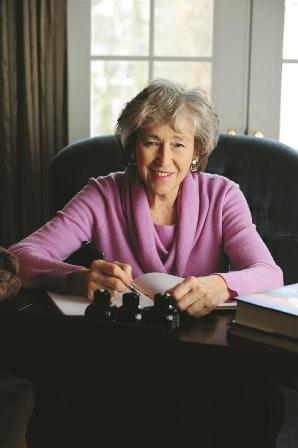 Since 1981, fans of the Richard Jury mysteries have come to expect eccentric characters, peculiar murders and a smart, cultured, analytical detective who searches for killers from a cast of disparate suspects. One of the more consistent hallmarks of a Richard Jury novel are the titles derived from clever names of actual pubs and bars, like The Old Fox Deceiv'd and The Stargazey.
Since 1981, fans of the Richard Jury mysteries have come to expect eccentric characters, peculiar murders and a smart, cultured, analytical detective who searches for killers from a cast of disparate suspects. One of the more consistent hallmarks of a Richard Jury novel are the titles derived from clever names of actual pubs and bars, like The Old Fox Deceiv'd and The Stargazey.